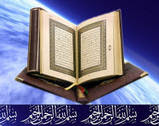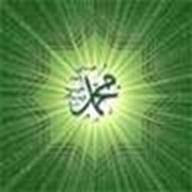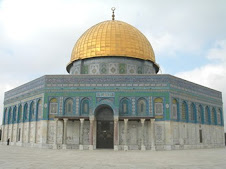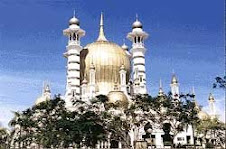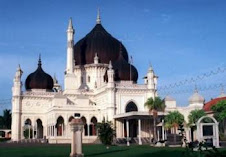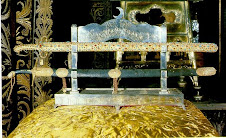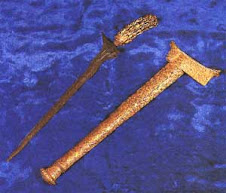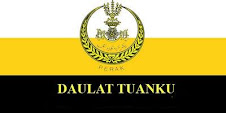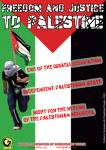

After testifying in our ‘Shahadah’ that there is no ‘ilah’ except Allah s.w.t. and Prophet Muhammad s.a.w. is the Messenger of Allah s.w.t., we are bound to know, believe and manifest this very dear and precious testimony in all aspects of our daily lives. We have gone through in our previous articles on ‘At-tauhid’ and how to safeguard it. Now, we would like to go through what does it take to accept Prophet Muhammad s.a.w. as the Messenger of Allah s.w.t. ‘Aqaid Nabawiyyah’ (Beliefs On Prophethood)
‘Aqaid Nabawiyyah’ (Beliefs On Prophethood)
‘Aqaid Nabawiyyah’ is about the mandatory attributes of Rasulullah s.a.w. which comprise 4 ‘must’ attributes, 4 ‘must not’ attributes and 1 ‘may’ attribute, totaling 9 attributes in all.
1. Meaning Of Prophet And Messenger Of Allah s.w.t.
In the book ‘Knowledge Of Beliefs’ by Sheikh Ibrahim Al-Bajuri states that a Prophet is a man who has been ordained with divine revelation on laws and was not commanded to convey these revelations to mankind.
However, a Messenger is a man who has been ordained with divine revelation on laws and has been commanded to convey these revelations to mankind.
That is why every Messenger is a Prophet and not every Prophet is a Messenger. Messengers are the delegations of Allah s.w.t. to reveal all the laws of Allah s.w.t. to mankind so that they may live harmoniously in this life and in the Hereafter. They are also Allah s.w.t.’s chosen ones who possess true and good personalities as a sign of the truth and greatness of Allah s.w.t’s laws and wishes.
All Messengers are men who are adults, with sound minds, free (not slaves) and their personalities are protected (‘maksum’) by Allah s.w.t. from any sins, bad deeds and ‘makruh’ (non-recommended) deeds or any deeds that are against the exalted character (‘khilaful aula’).
When there is any deed of a Messenger that according to the human mind may seem wrong, that in fact contains a great ‘hikmah’ (wisdom) and not because of the Messenger’s lusty inclination. For example, Prophet Adam a.s. had to leave Paradise because he ate the forbidden fruit (‘khuldi’). Then, Prophet Ibrahim a.s. lied when he answered the query by King Nimrod about the charge against him for destroying their idols. 2. ‘Must’ Attributes Of A Messenger Of Allah s.w.t.
2. ‘Must’ Attributes Of A Messenger Of Allah s.w.t.
In all the good attributes of Rasulullah s.a.w., all of them are exalted. Amongst these are 4 basic attributes for us to know in mandatory.
2.1 ‘Siddiq’ (Truthful)
It is mandatory for Rasulullah s.a.w. to own this ‘Siddiq’ attribute meaning that he is truthful and it is impossible for him to tell lies.
Being truthful for a Messenger has 2 implications. Firstly, it is suitable with what he says and the evidences. Secondly, it is suitable with what he believes even without any evidence.
Amongst the examples that were suitable with his deeds and not suitable with what he had said was the answer Rasulullah s.a.w. gave to his companion Zulyadin when the Prophet performed ‘Dzohor’ prayers and suddenly he gave ‘Salam’ after just 2 ‘rakaat’. Zulyadin asked, “Is the prayers ‘qasar’ (shortened) or you have forgotten, Oh Rasulullah?” Rasulullah s.a.w. replied, “No, not at all.” This means that the prayers were not shortened nor did the Prophet forget. In fact, the Prophet s.a.w. forgot and he continued the prayers with another 2 ‘rakaat’.
This incident is a ‘hikmah’ from Allah s.w.t. because it is a ‘tashri’’ (clarification) to teach mankind on the method of prayers when one forgets the number of ‘rakaat’ during prayers. The Prophet s.a.w. forgot not because he was day-dreaming or otherwise.
This ‘Siddiq’ attribute of the Messenger is also known as ‘Haq’. ‘Haq’ is “facts and the laws of Allah s.w.t. are in coherence”. So, the words of the Messengers of Allah s.w.t. are all true and there are no lies. If a Messenger lies then the laws of Allah s.w.t. are also not true. In fact, Allah s.w.t. has strengthened the truth of his Messengers with miracles. If the laws of Allah s.w.t. are not true, of course the ‘da’wah’ (religious propagation) of the Messengers was not believed by mankind.
2.2 ‘Amanah’ (Trustworthy)
It is mandatory for a Messenger to have the ‘Amanah’ attribute or trustworthy. It is impossible for a Messenger to betray. Trustworthy means he is protected physically and spiritually from doing any deeds that Allah s.w.t. forbids, even the non-recommended deeds, which are against the exalted character due to lusty inclinations.
The Messengers are protected by Allah s.w.t. from doing any bad deeds physically and spiritually, including the non-recommended deeds. When there seemed to be any act of Rasulullah s.a.w. that was against the law, in fact it has a great wisdom therein. For example, Prophet Muhammad s.a.w. was once performing his ablution by washing the parts of his body once and once, but in fact it should be thrice and thrice. Also, Rasulullah s.a.w. once did drink while standing. These incidents were clarifications to mankind on the laws of Allah s.w.t. and not from the Prophet s.a.w.’s whims and fancies. In fact, the clarifications of the laws of Allah s.w.t. were also an ‘ibadah’ for the Prophet s.a.w. Rasulullah s.a.w. said which means:
“Indeed, I am not forgetful but was made forgotten.”
[Hadith]
Verily, it is mandatory for the Messenger to be trustworthy because if they betrayed while doing bad deeds or the non-recommended deeds, then we will also be commanded the same. Whilst it is not valid or false that we are commanded to do bad deeds or non-recommended deeds, whether in the form of our actions, sayings or spiritual inclinations.
2.3 ‘Tabligh’ (Deliver)
It is mandatory for a Messenger to have the ‘Tabligh’ attribute meaning to convey all matters or laws that were commanded and then delivered to mankind or creations. It is impossible for a Messenger to hide anything that Allah s.w.t. has commanded. The Messengers were obedient and disciplined in implementing this ‘Tabligh’ attribute without any feeling of doubt or fear towards the unbelievers. Sometimes, the unbelievers evicted, threatened and moreover undertook to kill the Messengers.
The obligation of ‘Tabligh’ (deliver) is not just the obligation of the Messengers but also the obligation of the Muslims. Rasulullah s.a.w. said which means:
“Every matter that is commanded to the Messengers is also commanded to their ‘ummah’ (nations).”
“Convey from me even though it is only one sentence.”
[Hadith]
Indeed, if the Messengers hid this ‘Tabligh’ attribute commanded to him to be delivered to his nation, then of course we will also be commanded to hide knowledge. In fact, it is false or not valid if we are commanded this because verily Allah s.w.t. condemns people who hide knowledge.
2.4 ‘Fatanah’ (Intelligent)
It is mandatory for a Messenger to have the ‘Fatanah’ attribute meaning that he is intelligent. It is impossible for him to be stupendous. The task of the Messengers was to deliver the laws of Allah s.w.t. to those who wanted to follow and also to those who are unbelievers with bad morality and oppressive in every aspect of life.
To undertake the task of delivering the message commanded by Allah s.w.t. is not an easy task, but a task full of challenges. The Messengers are alone in facing their nations who are large in numbers and many of them rejected the Messengers except Prophet Moses a.s. who was accompanied by Prophet Aaron a.s.
If the Messengers were not intelligent of course they will not be able to give clarifications and ‘da’wah’ to mankind. With the knowledge and intelligence that were with the Messengers, many of the hard-hearted became soft-hearted, many that rejected became obedient and moreover followed the Messengers in propagating the ‘da’wah’. Indeed, if the Messengers did not possess the ‘Fatanah’ attribute, they could not have given arguments or reasoning to defeat their enemies. It is impossible for a Messenger to be unable to uphold their arguments. 3. ‘Must Not’ Attributes Of A Messenger Of Allah s.w.t.
3. ‘Must Not’ Attributes Of A Messenger Of Allah s.w.t.
In addition to the ‘must’ attributes of a Messenger that have been addressed above, there are 4 attributes that are impossible for the Messengers of Allah s.w.t. that form a negation to the ‘must’ attributes. They are:
3.1 ‘Kidzib’ (Lier)
It is impossible for the Messengers of Allah s.w.t. to have the ‘Kidzib’ attribute or the teachings brought by them are swayed to falsehood. This ‘Kidzib’ attribute is only present in the unbelievers and the hypocrites.
3.2 ‘Khiyanah’ (Betray)
It is also impossible for the Messengers of Allah s.w.t. to have the ‘Khiyanah’ attribute or they transgressed anything that Allah s.w.t. has forbid. For the Messengers, they possess the ‘must’ attribute of ‘Amanah’ or who that can be trusted whereas those who possess the attribute of ‘Khiyanah’ are the people who rejected the call of Allah s.w.t.
3.3 ‘Kitmaan’ (Hide)
It is impossible for the Messengers of Allah s.w.t. to have the ‘Kitmaan’ attribute or do not deliver but hide the truth. Indeed, the Messengers were delegated by Allah s.w.t. to deliver His true teachings because this is the task of the Messengers to deliver the message of truth as commanded by Allah s.w.t.
3.4 ‘Balaadah’ (Stupid)
It is an impossible matter for the Messengers of Allah s.w.t. to have the ‘Balaadah’ attribute meaning they are stupid. Indeed, the Messengers of Allah s.w.t. were delegated to possess intelligence because they need to spread their task to deliver the truthful matters, of course they need the good and right arguments to do that. The Messengers were equipped with a lot of knowledge coupled with many miracles that Allah s.w.t. has ordained them. So, it is impossible for the Messengers to possess a stupid attribute. 4. ‘May’ Attribute Of A Messenger Of Allah s.w.t.
4. ‘May’ Attribute Of A Messenger Of Allah s.w.t.
The ‘may’ attribute for a Messenger means that Messengers were also humans. As such, they possess human qualities. For example, the Messengers also ate, drank, married, became sick, etc. In spite of that, they were protected from attributes that can degrade their status as Messengers such as be inflicted with contagious diseases that could make people afraid being close to them.
Messengers were normal human beings who were ordained with divine revelations by Allah s.w.t. and made as good examples for mankind. All actions experienced or done by the Messengers contained the implementations of the laws of Allah s.w.t. except for some specific or special cases like marrying more than 4 wives and so on.
5. Understanding Prophet Muhammad s.a.w. As The Messenger Of Allah s.w.t.
Muslims need to know the lineage of Prophet Muhammad s.a.w. whether from his father’s side or from his mother’s side. The lineage from his father’s side is: Muhammad Rasulullah s.a.w. Bin Abdullah Bin Abdul Mutallib Bin Hashim Bin Abdul Manaf Bin Qushay Bin Kilab Bin Murrah Bin Ka’ab Bin Luay Bin Ghalib Bin Fihir Bin Malik Bin Nadhar Bin Kinanah Bin Khuzaimah Bin Mudrikah Bin Ilyas Bin Mudhar Bin Nizar Bin Ma’ad Bin Adnan who lived in the era of Prophet Moses a.s. After Adnan until Prophet Adam a.s., there are no authentic sources that can be taken for verification.
The lineage from his mother’s side is: Aminah Binti Wahab Binti Abdul Manaf Binti Zuhrah Binti Kilab and so on. The lineage of Aminah further on met at Prophet Muhammad s.a.w.’s lineage on his father’s side, that is at his great grandfather named Kilab.
All Prophet Muhammad s.a.w.’s lineage until Prophet Adam a.s. was from good people who uphold ‘At-Tauhid’ and none of them were unbelievers. Their marriages were also based on the teachings of ‘At-Tauhid’. Allah s.w.t. said in the Holy Quran which means:
“And thy movements among those who prostrate themselves.”
[Chapter Ash-Shu’ara: Verse 219]
Prophet Muhammad s.a.w. has a well named ‘Al-Kauthar’ which is prepared for man and genies to drink when they enter Paradise. The nature of the water is clearer than water, the odor is more fragrant than musk and the taste is sweeter than honey. Anyone who drinks from ‘Al-Kauthar’ well will never feel thirsty forever.
Indeed, Prophet Muhammad s.a.w. will give his ‘Shafa’at’ (Intercession) to all mankind in the Hereafter so that they may be judged speedily to separate those who are to enter Paradise or Hell. Rasulullah s.a.w.’s Intercession is called ‘Shafa’atul ‘Uzma’ which means the Great Intercession. This Intercession of Rasulullah s.a.w. is for the whole of mankind and genies who are believers and non-believers, including all the Prophets and Messengers since Prophet Adam a.s. and also all the Angels.
From Anas Bin Malik who reported that indeed Rasulullah s.a.w. has said which means:
“When Allah s.w.t. gathered the whole of mankind and genies in the Hereafter at a place called ‘Mahshar’, they felt afraid of the flames of Hell until they cuddle close together between them. Fortunately, they are still shielded by the Hell’s keeper named Malik (the angel).”
[Hadith]
The best time is during the time of Rasulullah s.a.w., then the time after that and then the time after that. Like what Rasulullah s.a.w. has said which means:
“The best of my ‘ummah’ is the one that lived near my generation, then the generation that followed after that, and then the generation that followed after that then.”
[Hadith]
Prophet Muhammad s.a.w. had 7 children altogether and they were:
1. Sayyid Qasim r.a.
He is the eldest child of the Prophet s.a.w., until the Prophet s.a.w. was nicknamed Abul Qasim. Sayyid Qasim r.a. only lived for 17 days.
2. Sayyidah Zainab r.a.
3. Sayyidah Ruqayyah r.a.
4. Sayyidah Ummu Kulthum r.a.
5. Sayyidah Siti Fatimah r.a.
6. Sayyid Abdullah r.a.
He was nicknamed Tayyib and Tahir.
7. Sayyid Ibrahim r.a.
He only lived for 70 days.
All of the Prophet s.a.w.’s children were born to Sayyidatina Siti Khadijah r.a. except Sayyid Ibrahim r.a. who was born to Sayyidatina Mariyah Al-Qibti r.a.
Our Hope
After knowing ‘At-tauhid’, implementing and safeguarding it, we now know Rasulullah s.a.w. who is the dearest to us above all human beings. By reliving this faith, it should be suffice for us to form a base to move forward in starting a path of excellence to be the best ‘ummah’ (nation) for mankind. The pre-requisite to be the best ‘ummah’ of course is to carry on the work of the Messengers of Allah s.w.t., amongst them is ‘amar ma’ruf nahi mungkar’ (enjoin good and forbid evil), which we will touch on in our next article ‘Risalah Tauhid’.
References:
1. 20 Attributes – Attributes Of Allah & Submission To His Oneness: Muhammad Isa Selamat
Tuesday, March 4, 2008
How Well Do We Know Our Prophet Muhammad s.a.w.?
Posted by
Bukit Chandan
at
9:18:00 AM
2
comments
![]()
![]()
Subscribe to:
Comments (Atom)
